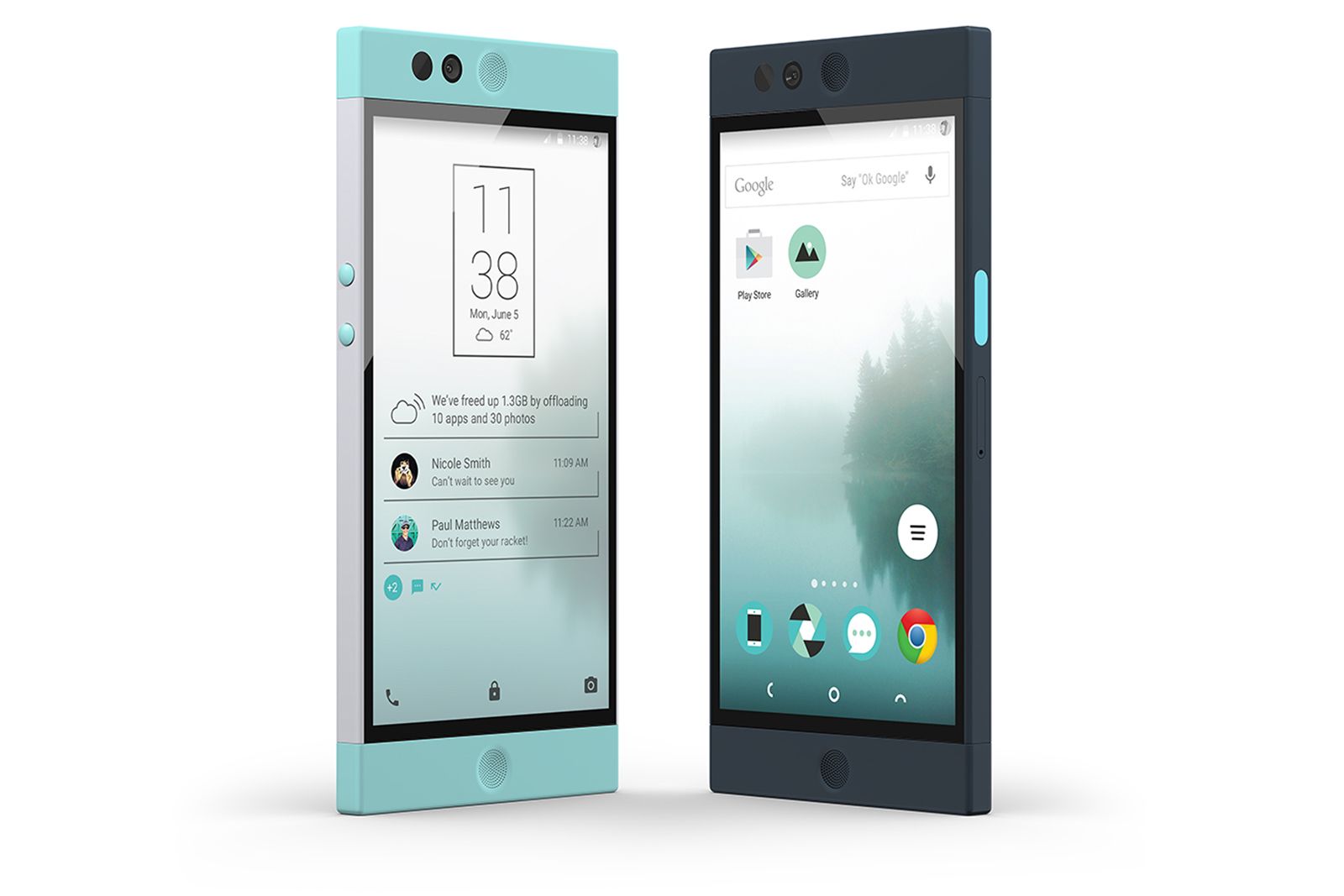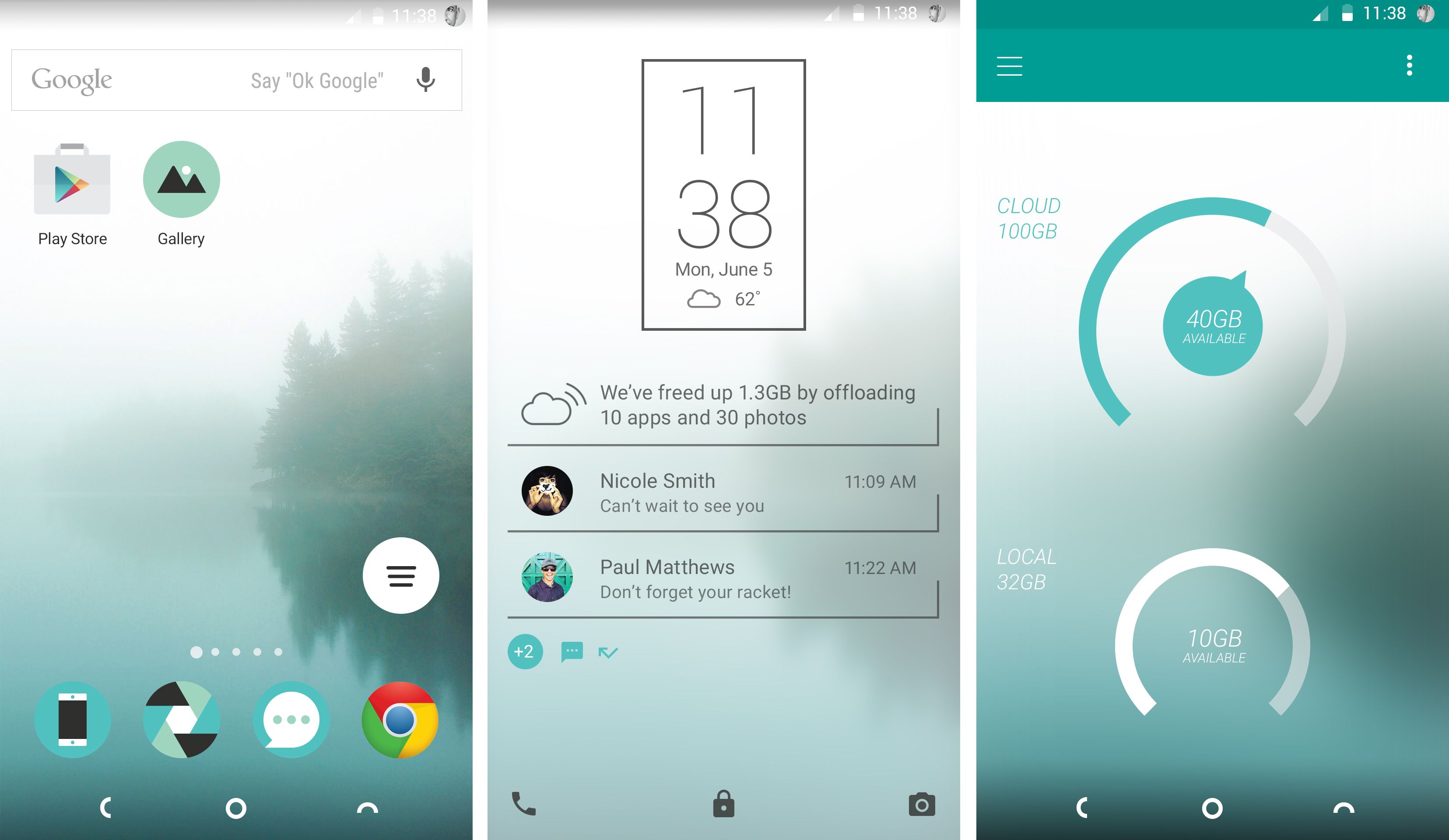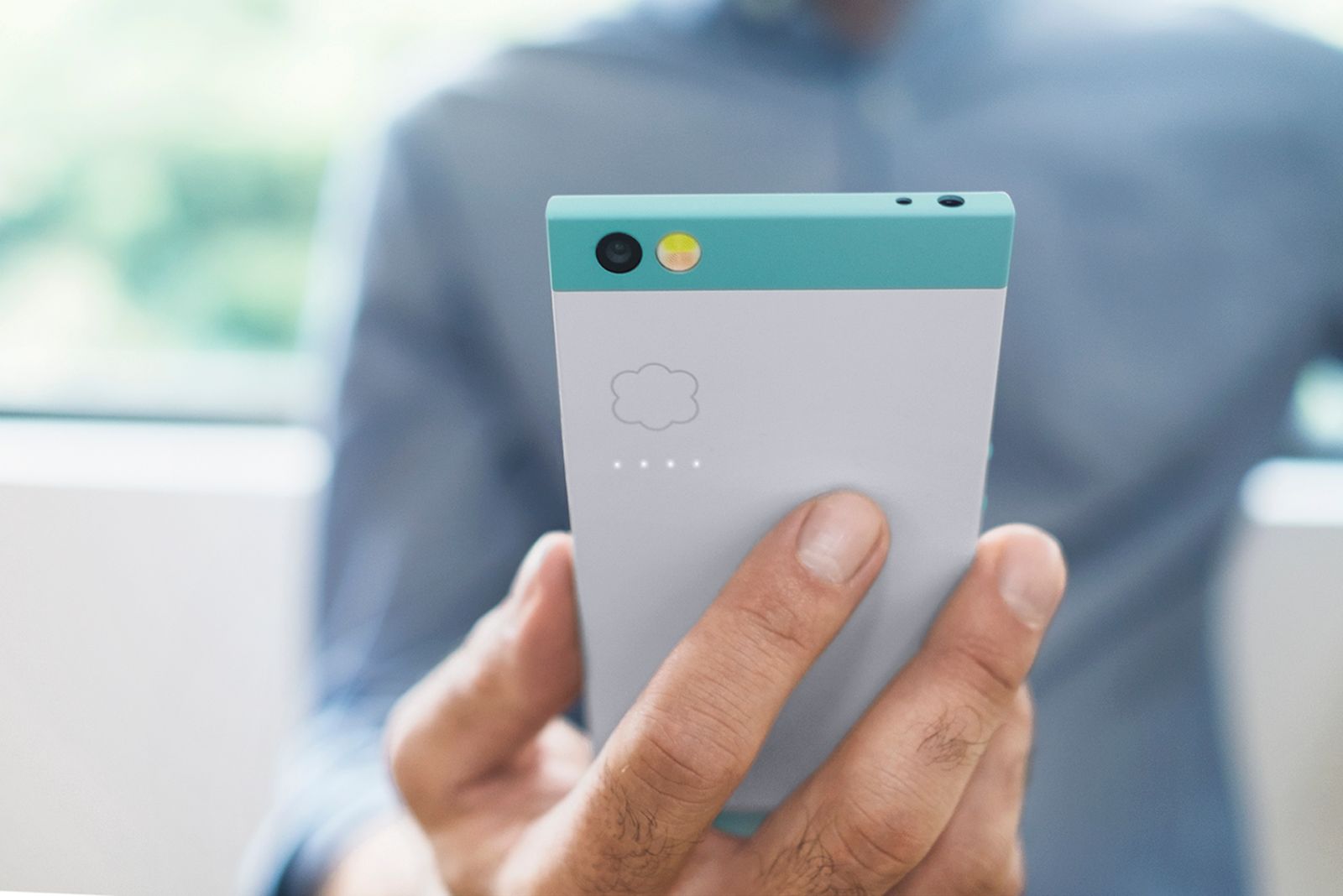Nextbit has announced its first smartphone, the Nextbit Robin, described as a cloud-first Android device.
The Nextbit Robin wants to shake up both hardware and software, taking Android deeper into the cloud with a unique storage management approach.
The unique selling point of the Nextbit Robin is how it manages storage. The device comes with 32GB of internal storage, but has 100GB of cloud storage too.
Big deal you say - iCloud, Google Drive, OneDrive offer cloud storage - but Nextbit works seamless with the cloud using that space to backup and offload the content of your phone.
This doesn't just include photos and videos, but your apps and data too, which is where it gets really clever.
Nextbit will sync your apps with the cloud, meaning it can free-up local storage as it's needed. That means you won't run out of storage when you need it, for example taking photos or video on a day out.
It does this by backing up to the cloud at convenient points - at night when connected to Wi-Fi and a charger, for example.
The software is clever enough to recognise those apps you use regularly, so keep them on the device, but, for example, if you rarely use a travel app, it will let that space be over-written with other data.
The real magic is that when you want that app back again, it can be seamlessly restored to your device with all the data in place, and no need to login again.
As interesting as this device is, the people behind it are interesting too. Nextbit was founded by ex-Googlers Tom Moss and Mike Chan, both of whom formerly worked on Android in the early years. Moss is a founding board member of Cyanogen, and Chan worked on Gmail's initial sync protocol, amongst other things.
They're joined by Scott Croyle, formerly of HTC and the designer behind many of HTC's iconic products, including HTC One M7 and M8. So there's a lot of experience going into this new device.
Talking to Pocket-lint prior to the announcement, Croyle said that Nextbit was "a bit bored" with everything that was out there, saying it was taking a "bolder approach."
Chan also demoed the new software to us. When an app is offloaded to the cloud, the icon turns grey, leaving a "shadow icon" behind. This indicates that you'll need to restore it before using it again.
For most situations, that won't cause a problem, because your regular apps will always be preserved on your phone for immediate use. Those that aren't will need to be downloaded again before they open.
Aside from the software, the hardware is unique too. This is where Croyle's influence comes into play and you might be able to see some of the "provocative" design we've seen before at HTC on show here.
From the device name - Robin - to the contrasting colours of the design, there's no mistaking that this is Nextbit's phone.
The specs include a Qualcomm Snapdragon 808 chipset with 3GB of RAM, 32GB internal storage with 100GB of cloud storage, a 5.2-inch 1920 x 1080 IPS display, a 13-megapixel rear camera and 5-megapixel front camera. Note the cloud detail with LED indicators on the rear so you know when Nextbit is talking to the cloud.
Robin comes with a fingerprint scanner in the power button and USB Type-C connector, so it's thoroughly up-to-date. The Nextbit Robin will run a modified version of Android Lollipop initially, with an update to Android 6.0 Marshmallow following launch.
Nextbit wants to appeal to Android enthusiasts with the Robin, so it will come with an unlocked bootloader and recover ROMs will be available to restore your device if your tinkering goes awry.
The Nextbit Robin is hitting Kickstarter today to help demand planning, with a 30-day campaign and looking to raise $500,000. Nextbit Robin will hit general retail in Q1 2016, for $399 (£260). It will be available internationally.



